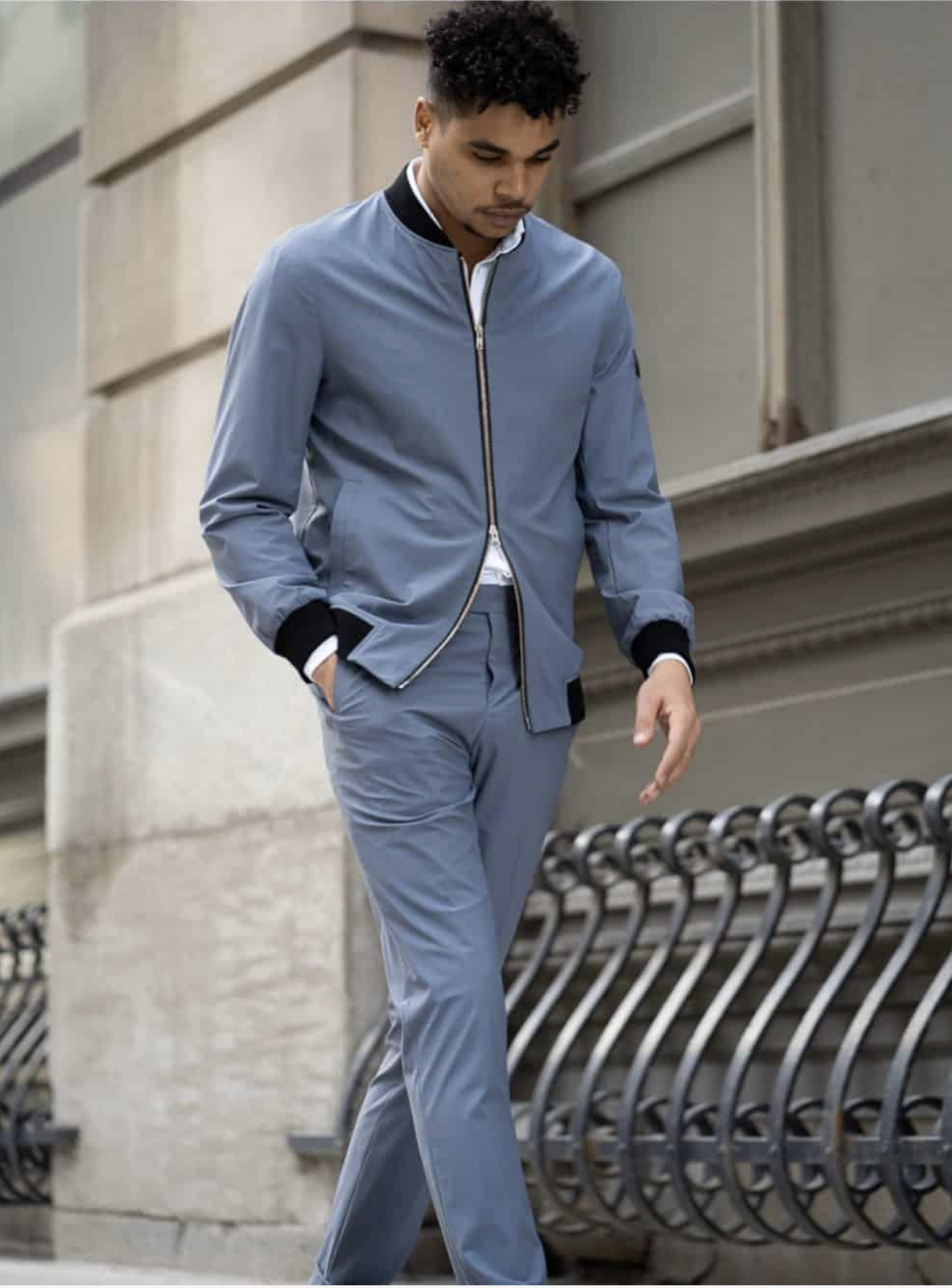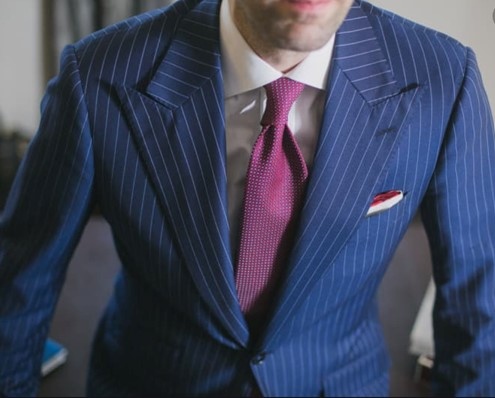Apr 30, 2021
Sweats to impress: How the pandemic is shaking up office wear
, BNN Bloomberg
Competition between Shopify and Amazon better for the consumer: Lululemon founder Chip Wilson
Throughout the pandemic, suits sat in closets collecting dust as Canadians flocked to sweatpants, baggy shirts, and other athleisure trends while working from home.
Those cozy Canadians may not be too eager to get rid of their snug threads once they begin returning to the office, raising the question of what suitable office wear will look like in the anticipated post-pandemic world of balancing working in-office and from home.
The demand for athleisure wear in the past year boosted online sales for companies like upscale comfort retailer Roots, which posted a $12.3 million profit in the fourth quarter. Activewear companies like Athleta Inc. and Vancouver-based Lululemon also saw rising sales as yoga bottoms quickly replaced skirts and suit pants.
Lululemon founder Chip Wilson told BNN Bloomberg consumers have been heading toward athleisure trends for years now, though COVID-19 has been an accelerator. He added that Canadians likely won’t be reversing course any time soon.
“COVID has moved [the comfort trend] ahead. Can you ever move back? Well, the suit and tie and that type of apparel was really set up for working in England in days when it was cold and there was no heating and it was a different world,” Wilson said in a broadcast interview.
“Now we’re living in a more sophisticated world where I think people are seeing more about what their brains and ability are, and less about what I call looking good,” he said.

For Michael Nguyen, founder of the Toronto-based suit tailor Garrison Bespoke, looking good and being comfortable don’t have to be mutually exclusive. Nguyen said the tailored jogger is becoming a fast favourite among his clients who want the professional look without sacrificing comfort. The pivot towards professional athleisure was quickly picked up by athletes, artists, actors and entrepreneurs, Nguyen explained.
“People have moved towards wearing joggers because they’re comfortable, and this means that they need to wear joggers that you work out in…” he said. “But the fact that they have that level of versatility and comfort obviously helps them do their jobs better.”
That said, Nguyen still sees a segment of old school professionals who are driving the demand for a tailored three-piece suit. He said his company was surprised by how many clients ordered the classic pin-stripe pattern in anticipation of returning to Bay Street in style.
“The most conservative power brokers are actually buying the three-piece suit,” he said. “They’re buying them because they’re going out once a week to the office and they really want to set an example.”

Throughout history, suits and formal office wear have had a deep cultural significance as a moniker of power and success, explained Farley Chatto, Toronto-based designer and lecturer at the Ryerson School of Fashion.
Attitudes toward the stiff suit had been evolving in recent years even before the pandemic as more consumers dress for comfort while travelling and even in job interviews, particularly among millennials. With the pandemic escalating comfort trends, he added retailers will have to adjust to this rapidly changing fashion reality.
“It will be interesting because it will sort of regenerate a new business in sort of a new form. It will force older companies to either update or be forced out, and expand their market in terms of product,” Chatto said in an interview. “I think there’ll be new marketing because the workplace will be different, because if you’re not in every day, you might not need as many [suits].”
When the pandemic subsides and workers begin returning to the office, companies will have to consider how their dress policies will look in an anticipated hybrid world of working from home and in the office.
“Certainly, institutions and companies will still require at least a jacket, so you’re going to see a resurgence in that,” Chatto explained. “It might not be a full suit, but you’ll see much more [suit pieces].”
For tailors like Nguyen, the clothes make the professional. Whether or not Canadians return to work in comfort, many will want to return in style.
“It doesn’t actually matter where you are or what you do, what matters is how it’s delivered,” he said. “Dressing has to be consistent with that, so you need to obviously adhere to the tenets of professionalism.”





